Fueling Creativity in Education
Episodes
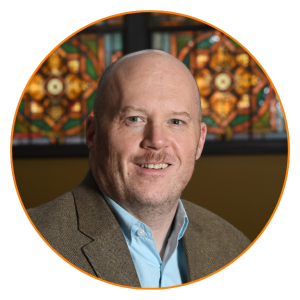
Tuesday Nov 07, 2023
Ideas to Explore and Evaluate Chat GPT with Dr. James Diamond
Tuesday Nov 07, 2023
Tuesday Nov 07, 2023
In this episode of the Fueling Creativity in Education Podcast, Dr. Matthew Worwood and Dr. Cyndi Burnett dive into the fascinating world of technology tools in education with special guest Dr. Jim Diamond.
One of the key themes discussed is the importance of evaluating tools regularly to support student learning. They explore how the context in which these tools are used can significantly vary from place to place, and what works in one educational setting may not work in another. Additionally, they delve into the need for educators to assess the affordances of these tools and determine if they align with their goals and objectives.
Creativity also takes center stage in this episode. They discuss evaluating creativity in tools and techniques that stimulate divergent thinking in students. To recognize and foster creativity in their classrooms, educators are encouraged to define creativity in a specific context and set clear assessment criteria.
Finally, the discussion looks at the potential of AI technologies like Chat GPT and the ethical considerations surrounding their use. Jim shares his thoughts on how Chat GPT can facilitate productive dialogue and brainstorming between educators and students while emphasizing the need for critical thinking and evaluation of AI-produced content.
Tune in to this thought-provoking episode for valuable insights on evaluating and incorporating technology tools and creative thinking in education.
Eager to bring more creativity into your school district?Check out our sponsor Curiosity2Create.org and CreativeThinkingNetwork.comWhat to learn more about Design Thinking in Education? Do you want to build a sustained culture of innovation and creativity at your school? Visit WorwoodClassroom.com to understand how Design Thinking can promote teacher creativity and support professional growth in the classroom. Subscribe to our monthly newsletter!
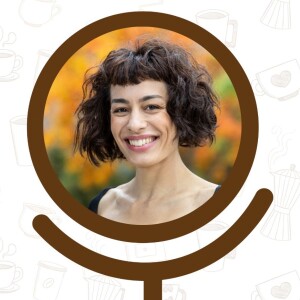
Tuesday Nov 29, 2022
Tuesday Nov 29, 2022
In Part 1 of this Double Espresso episode, Dr. Cyndi Burnett and Dr. Matthew Worwood welcome Dr. Patrícia Alves-Oliveira, a Postdoctoral Researcher who focuses on designing human-robot interaction. Patrícia is especially interested in leveraging the qualities of social robots to empower human health and education, foster creativity in children, and improve mental health among adolescents.
Listen in to this episode to learn the impact of creativity interventions for children, how teachers can assess children to see if those interventions are working, and why it’s not always important to measure the outcomes, but to critique them.
“There is so much around the process that can impact other ways of education. For example, even during the teaching of history or math or biology, could there be a space in the formal curriculum where teachers open a creativity thought process?” – Patrícia Alves-Oliveira
Patrícia shares her best advice for improving your interventions to promote creativity in young children, the power of not having expectations of your students, and how to introduce more fun, playful activities in your classroom.
“We tend to forget this, but the physical world wasn’t born. We created it. So, change it. Change it to whatever you need to make the activity you want to bring in reflected in the environment, too.” – Patrícia Alves-Oliveira
Stay tuned for Part 2 for a discussion on using robots to foster creativity in kids + Patrícia’s Tips for Teachers and Parents!
“I don’t believe that children always need to be doing something to be creative. Sometimes, it happens in the closet of their minds and then it comes out unexpectedly.”
– Patrícia Alves-Oliveira
Recommended Resources:
Read Patrícia’s research papers
Subscribe to our monthly newsletter!
Eager to bring more creativity into your home or classroom?
Access various creativity resources and tools & listen to more episodes of The Fueling Creativity in Education Podcast by visiting www.CreativityandEducation.com.
What to learn more about Design Thinking in Education?
Do you want to build a sustained culture of innovation and creativity at your school? Visit WorwoodClassroom.com to learn how Design Thinking can promote teacher creativity and support professional growth in the classroom.
Have a question? Email Dr. Burnett and Dr. Worwood at questions@fuelingcreativitypodcast.com!
You can also find The Fueling Creativity in Education Podcast on Apple Podcasts, Spotify, Audible, and PodBean! Make sure to rate, review, and share the podcast if you enjoy it!
About Patrícia Alves-Oliveira:
Patrícia Alves-Oliveira is a Postdoctoral Researcher at the Computer Science and Engineering Department at the University of Washington in Seattle. Patrícia received her Ph.D. in Human-Robot Interaction studies in 2020 from the University Institute of Lisbon and spent time at Cornell University as a Visiting Graduate Scholar. Her research focuses on designing human-robot interaction. She is especially interested in leveraging the qualities of social robots to empower human health and education. During her PhD, she studied the application of robots in fostering creativity in children. Now, during her postdoc, she is investigating how robots can demystify and improve mental health among adolescents. Patricia’s interdisciplinary work unifies the fields of robotics, design, and psychology.
Visit Patrícia’s website
Follow her on Twitter
Connect with her on LinkedIn
Read her research papers

Tuesday Sep 06, 2022
An Industry Perspective of Creativity with Albert Schneider
Tuesday Sep 06, 2022
Tuesday Sep 06, 2022
The business world is paving the way for future creativity in education. Want to learn how? Tune in to this episode of Fueling Creativity in Education as Dr. Cyndi Burnett and Dr. Matthew Worwood welcome Albert Schneider. Albert is the Managing Principal at Aschneider Consulting LLC. and has an extensive background working for IBM and in the education field.
Listen in to learn how Albert defines creativity from a corporate perspective and breaks down the specific skills that will be needed for creativity in the future. He shares his thoughts on how creativity and creative thinking can be taught and the important role of inclusivity and diversity of thought in facilitating creative environments. Albert also speaks on the value in collaborating disciplines (school subjects) as well as his perspective of the benefits of public/private partnerships, like IBM’s P-TECH internship program.
“What I look for is how do we bring more thinking, more different thinking, constructive thinking? And often, you get that from different perspectives.” – Albert Schneider
Albert’s Tips for Teachers and Parents:
You need to be inclusive. Find a way to reach out to every single student.
Be positive from the perspective of encouragement. Not everything is right, but show them how they can do better.
Give students a framework and a space where they can fail. Most things are perfected only after multiple failures.
Recommended Resources:
Listen to the episode with Jonathan Plucker
Subscribe to our monthly newsletter!
Eager to bring more creativity into your home or classroom?
Access various creativity resources and tools & listen to more episodes of The Fueling Creativity in Education Podcast by visiting www.CreativityandEducation.com.
What to learn more about Design Thinking in Education?
Do you want to build a sustained culture of innovation and creativity at your school? Visit WorwoodClassroom.com to learn how Design Thinking can promote teacher creativity and support professional growth in the classroom.
Have a question? Email Dr. Burnett and Dr. Worwood at questions@fuelingcreativitypodcast.com!
You can also find The Fueling Creativity in Education Podcast on Apple Podcasts, Spotify, Audible, and PodBean! Make sure to rate, review, and share the podcast if you enjoy it!
About Albert Schneider:
Albert Schneider is the managing Principal at Aschneider Consulting LLC. Primary areas of expertise include global I/T infrastructure management including cyber-security, business transformation enable-ment, and new ways of working. Other areas of interest are mentoring, volunteering, STREAM education, and just opened a restaurant www.charandlemon.com .
Mr. Schneider currently works for LHC Group, a leading homecare and hospice company, where he is a contractor, leading enterprise-wide projects.
Mr. Schneider joined IBM in 1979 as a computer operator and from 1982 to 1985 became a computer programmer in PL/1 (System 370) and RPG3 (System 38).
From 1986 to 1993, Mr. Schneider was in sales and marketing as a systems engineer, general client representative, and a marketing specialist.
From 1994 to 1997, Mr. Schneider was Program Director of worldwide I/T strategy.
From 1998 to 2000, Mr. Schneider was Program Director of Global Client Care.
In 2000, Mr. Schneider was executive assistant to IBM's CIO and VP, Business Transformation.
From 2001 to 2007, Mr. Schneider was the Director of Information Technology and Business Transformation Executive for IBM Research.
From 2008 to 2012, Mr. Schneider was Director, Service Delivery and Transformation Programs within Global Technology Services for IBM.
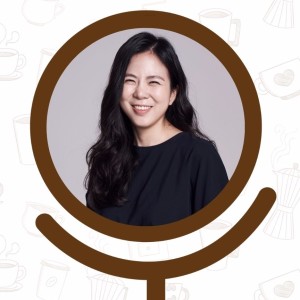
Tuesday Apr 19, 2022
Creativity and a Global Perspective of World Problems with Monica Kang
Tuesday Apr 19, 2022
Tuesday Apr 19, 2022
How does one approach creativity within a global context? How can the creative process help us and the future generations solve global problems, like climate change? In this episode of the Fueling Creativity podcast, Dr. Cyndi Burnett and Dr. Matthew Worwood speak with Monica Kang, Founder & CEO of InnovatorsBox, Author of Rethink Creativity & Have You Seen My Friends?, and Podcast Host of Dear Workplace and Curious Monica. She’s a creative educator who’s transforming today’s workforce with the mission to build a workplace for all by rethinking creativity.
Listen in to learn how she reignited her love for her job and her life through a simple mindset shift, curiosity, and creativity, as well as how that led her to help others tap into their innate creativity through InnovatorsBox. You’ll gain insight into the difference between voluntary change and forced change and how creativity and the creative process plays a role in solving complex global problems. Plus, Monica talks about the meaning behind her books, how she approaches creativity within different cultures, and how you can start incorporating curiosity, creativity, and courage into your curriculum.
“When we embed creativity as a way of living, there’s no limit to how we see and solve and approach.” – Monica Kang
Monica’s Tips for Teachers and Parents:
Before stressing about the curriculum, become aware of how you talk about creativity at home and in the classroom. We tend to embed this image of what curiosity, creativity, and courage are supposed to look like, so pay attention to where your kids think differently, identify the action of them being imaginative and creative, and encourage them to enjoy and explore that feeling courageously.
If you’re ready to build this into your curriculum, add that action part into your lessons to let them feel and experience curiosity, creativity, and courage.
Make curiosity, creativity, and courage FUN. If they’re doing it for the grade, it’s not fun. Be intentional about getting to know your kids/students and what’s fun to them.
“The whole reason why I wanted to do this was I felt creativity was inaccessible. I felt, as somebody who was in a space that was traditionally not creative, that it wasn’t for me and I know a lot of people that still feel that way.”
- Monica Kang
Resources Mentioned:
InnovatorsBox
Rethink Creativity by Monica Kang
Have You Seen My Friends? by Monica Kang
Dear Workplace Podcast
Curious Monica Podcast
Subscribe to our monthly newsletter!
Eager to bring more creativity into your home or classroom?
Access various creativity resources and tools & listen to more episodes of The Fueling Creativity in Education Podcast by visiting www.CreativityandEducation.com.
What to learn more about Design Thinking in Education?
Do you want to build a sustained culture of innovation and creativity at your school? Visit WorwoodClassroom.com to learn how Design Thinking can promote teacher creativity and support professional growth in the classroom.
Have a question? Email Dr. Burnett and Dr. Worwood at questions@fuelingcreativitypodcast.com!
You can also find The Fueling Creativity Podcast on Apple Podcasts, Spotify, Audible, and PodBean! Make sure to rate, review, and share the podcast if you enjoy it!
About Monica Kang:
Monica H. Kang is on the mission to build a workplace for all by rethinking creativity. She is the Founder & CEO of InnovatorsBox, Author of Rethink Creativity & Have You Seen My Friends, Podcast Host of Dear Workplace and Curious Monica. An internationally recognized expert in workplace creativity, she facilitates culture transformation, leadership development, and team building in a way that is fun, actionable, and relatable. Monica works with clients worldwide including Fortune 500 companies, higher education, government, and nonprofits. Prior to InnovatorsBox®, Monica was a nuclear nonproliferation policy expert. She holds an M.A. from SAIS Johns Hopkins University in Strategic Studies and International Economics and a B.A. from Boston University.
Connect with Monica Kang on LinkedIn

Tuesday Feb 01, 2022
Tuesday Feb 01, 2022
How can teachers prepare students for the innovative future of work? In this episode of Fueling Creativity, Dr. Cyndi Burnett and Dr. Matthew Worwood speak with world-renowned author and Professor of Engineering Innovation, Dr. David Cropley, about the psychology and ethics of creativity and innovation in the context of technology, engineering, and design. Listen in to learn how educators can prepare students to be better equipped to work with machine learning and AI in creative and problem-solving environments.
“The big issue with creativity right now revolves around the future of work and the growing role of AI, so artificial intelligence and automation and related technologies, that are impacting the work place.” - Dr. David Cropley
David explains the difference between domain general and domain specific creativity, why it’s more challenging to feel creative as a teacher in the sciences or humanities, and the unique role of malevolent creativity in education and business. He also speaks on how rigorous, objective creativity testing can be made accessible to schools. Plus, David shares his thoughts on the relationship between and prioritization of aesthetics, novelty, and functionality in any design process.
David’s Tips for Teachers:
Creativity is a multifaceted competency. Don’t think about creativity as a 21st century skill, it’s better to think about it as a general competency or capability.
Creativity is about how we think and personal qualities, like openness to new experiences, willingness to take risks, tolerance for uncertainty, etc. It’s also a matter of the environment. You have the opportunity to demonstrate aspects of creativity in the classroom.
Try and be very concrete about making creativity happen. Shift towards asking more open-ended questions and prompting students to solve open-ended problems.
Resources Mentioned:
Books by Dr. David Cropley
Eager to bring more creativity into your home or classroom?
Access various creativity resources and tools & listen to more episodes of The Fueling Creativity in Education Podcast by visiting www.CreativityandEducation.com.
What to learn more about Design Thinking in Education?
Do you want to build a sustained culture of innovation and creativity at your school? Visit WorwoodClassroom.com to learn how Design Thinking can promote teacher creativity and support professional growth in the classroom.
Subscribe to our monthly newsletter!
You can also find The Fueling Creativity Podcast on Apple Podcasts, Spotify, Audible, and PodBean! Make sure to rate, review, and share the podcast if you enjoy it!
About Dr. David Cropley:
David Cropley is the Professor of Engineering Innovation at the University of South Australia. He specialises in helping people and organisations become better, more effective, problem solvers.
Dr Cropley joined the School of Engineering at the South Australian Institute of Technology (SAIT) in 1990, after serving for four years in the United Kingdom’s Royal Navy, including deployments to the Caribbean and Middle East. Following the establishment of the University in 1991, he completed a PhD in Measurement Systems Engineering in 1997, and a Graduate Certificate in Higher Education in 2002.
Dr Cropley is author/co-author of nine books including Creativity and Crime: A Psychological Analysis (Cambridge University Press, 2013); The Psychology of Innovation in Organizations (Cambridge University Press, 2015), and Femina Problematis Solvendis – Problem-Solving Woman: A History of the Creativity of Women (Springer, 2020).
Books by Dr. David Cropley
Connect with him on LinkedIn
Follow him on Twitter
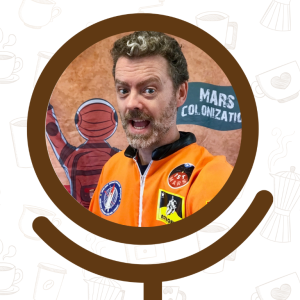
Friday Oct 29, 2021
Teaching students to think for tomorrow with Jonathan Nalder
Friday Oct 29, 2021
Friday Oct 29, 2021
What does the future of creativity and innovation look like and how do we get students involved? In this episode of Fueling Creativity, Dr. Cyndi Burnett and Dr. Matthew Worwood speak with Jonathan Nalder, a globally awarded innovator in education and Chief Futures Officer at STEM Punks, about the best practices for integrating digital tools and forward thinking in learning environments.
Listen in as Jonathan shares his thoughts on why future trends are important in education, how STEM is connected to creativity, and the trends you can expect in education in the next 10-15 years.
They also discuss the role of empathy in design thinking, how he and STEM Punks are preparing students to work in collaboration with machines and AI, and the strategies he uses in project-based learning environments to get students thinking about potential human problems of the future. Then, he sheds light on his program, First School on Mars, and how it has grown over the years.
“Instead of going, “How are we going to solve radiation in space?” You know, really hard science… What we do to flip that instead is... “Okay, if humans are going to Mars, they’re going to be away from Earth for 3-4 years minimum. So, what kind of base are you going to design that will mean the humans are happy living away?”” - Jonathan Nalder
Jonathan’s Tips for Parents & Teachers:
Make time for exploring in the classroom and give your students agency within that.
Bring physical props into the classroom.
Think about human relationships in relation to technology.
Visit FutureWe.org and STEMPunks.com.au to gain access to powerful resources and become a part of our community!
Resources Mentioned:
Listen to the episode with Bryan Alexander: https://bit.ly/3vQkQqc
Save Tomorrow for the Children by E. Paul Torrance: https://amzn.to/3GG58mC
Eager to bring more creativity into your home or classroom?
Access various creativity resources and tools & listen to more episodes of The Fueling Creativity in Education Podcast by visiting www.CreativityandEducation.com.
What to learn more about Design Thinking in Education?
Do you want to build a sustained culture of innovation and creativity at your school? Visit WorwoodClassroom.com to learn how Design Thinking can promote teacher creativity and support professional growth in the classroom.
Subscribe to our monthly newsletter!
About Jonathan Nalder:
Jonathan has spent 19 years as a creative ideas factory, scaffolder of change, and builder of supportive communities with education and training organizations, businesses, entrepreneurs, schools and space professionals. He spends up to 90 minutes every day researching future trends so he can distill this with his experience as a visual story-teller, planner, teacher, and writer so that communities of practice world-wide can benefit.
Connect with Jonathan:
Connect with him on LinkedIn: www.linkedin.com/in/jonathannalder
You can also find The Fueling Creativity Podcast on Apple Podcasts, Spotify, Audible, and PodBean! Make sure to rate, review, and share the podcast if you enjoy it!
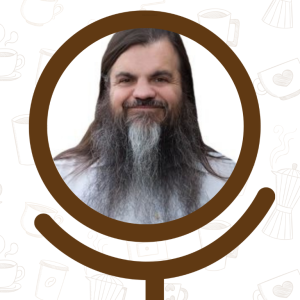
Friday Jul 23, 2021
Friday Jul 23, 2021
How is machine learning and AI related to creativity? How can we use them to prepare for the future? In this episode of Fueling Creativity, Dr. Cyndi Burnett and Dr. Matthew Worwood speak with Bryan Alexander, an award–winning, internationally recognized futurist, researcher, writer, speaker, consultant, and teacher.
Tune in to learn what it means to be a futurist, how we can use creativity and automation to anticipate the future, and the limitations of artificial intelligence in being creative. You’ll gain insight into how teachers and administrators can utilize AI to optimize teaching strategies and school management systems.
Bryan also sheds light on a few eye-opening trends, like the decreasing birth rate, that are impacting K-12 and higher education and what this means for our children’s future.
“We now have, within creativity, two options: We have the cyborg option where AI can help us be creative and help us expand our creative output, and we also have computers that simply are creative and produce creative outputs.”
- Bryan Alexander
Bryan’s Tips for Teachers and Parents:
Play with teaching tools that already use AI. Many are free! For example, you can use Duolingo, the language-teaching app.
Look at the overall field of AI studies to get familiar with the various technologies, but also look at some of the criticisms of these technologies.
Look at AI and automation outside of teaching and learning!
Resources Mentioned:
OECD Trends Shaping Education 2019
Deep Dream
Duolingo
Eager to bring more creativity into your home or classroom?
Access various creativity resources and tools & listen to more episodes of The Fueling Creativity in Education Podcast by visiting www.CreativityandEducation.com.
What to learn more about Design Thinking in Education?
Do you want to build a sustained culture of innovation and creativity at your school? Visit WorwoodClassroom.com to learn how Design Thinking can promote teacher creativity and support professional growth in the classroom.
Subscribe to our monthly newsletter!
You can also find The Fueling Creativity Podcast on Apple Podcasts, Spotify, Audible, and PodBean! Make sure to rate, review, and share the podcast if you enjoy it!
About Bryan Alexander:
Bryan Alexander is an award–winning, internationally known futurist, researcher, writer, speaker, consultant, and teacher. Bryan speaks widely and publishes frequently, with articles and interviews appearing in venues including The Atlantic Monthly, Inside Higher Ed, the Washington Post, MSNBC, The Wall Street Journal, UNational Public Radio (2017, 2020, 2020, 2020, 2020), the Chronicle of Higher Education (2016, 2020), the Atlantic Monthly, and Reuters.
He recently published Academia Next: The Futures of Higher Education for Johns Hopkins University Press (January 2020), which won an Association of Professional Futurists award. He is currently working on Universities on Fire: Higher Education in the Age of Climate Crisis (2022). His two other recent books are Gearing Up For Learning Beyond K-12 and The New Digital Storytelling (second edition).
Bryan is currently a senior scholar at Georgetown University and teaches graduate seminars in their Learning, Design, and Technology program.
Visit Bryan’s website
Follow him on Instagram
Follow him on Twitter
Connect with him on LinkedIn